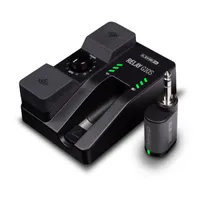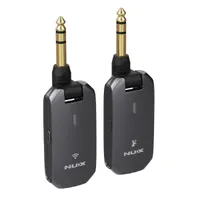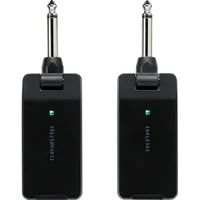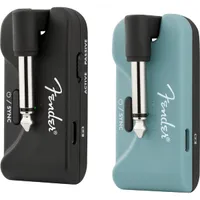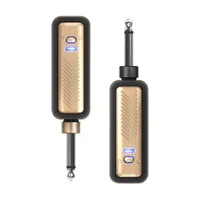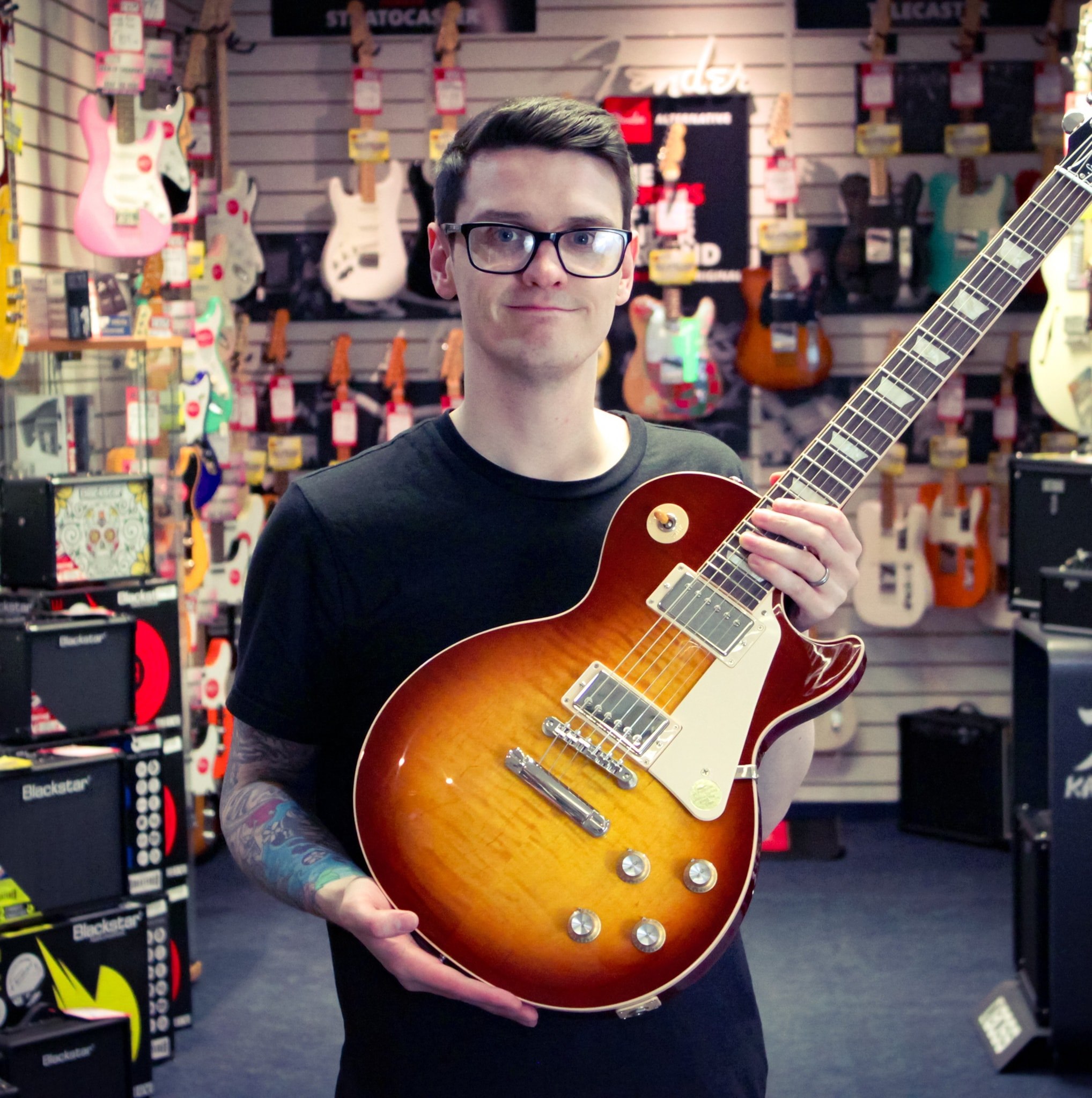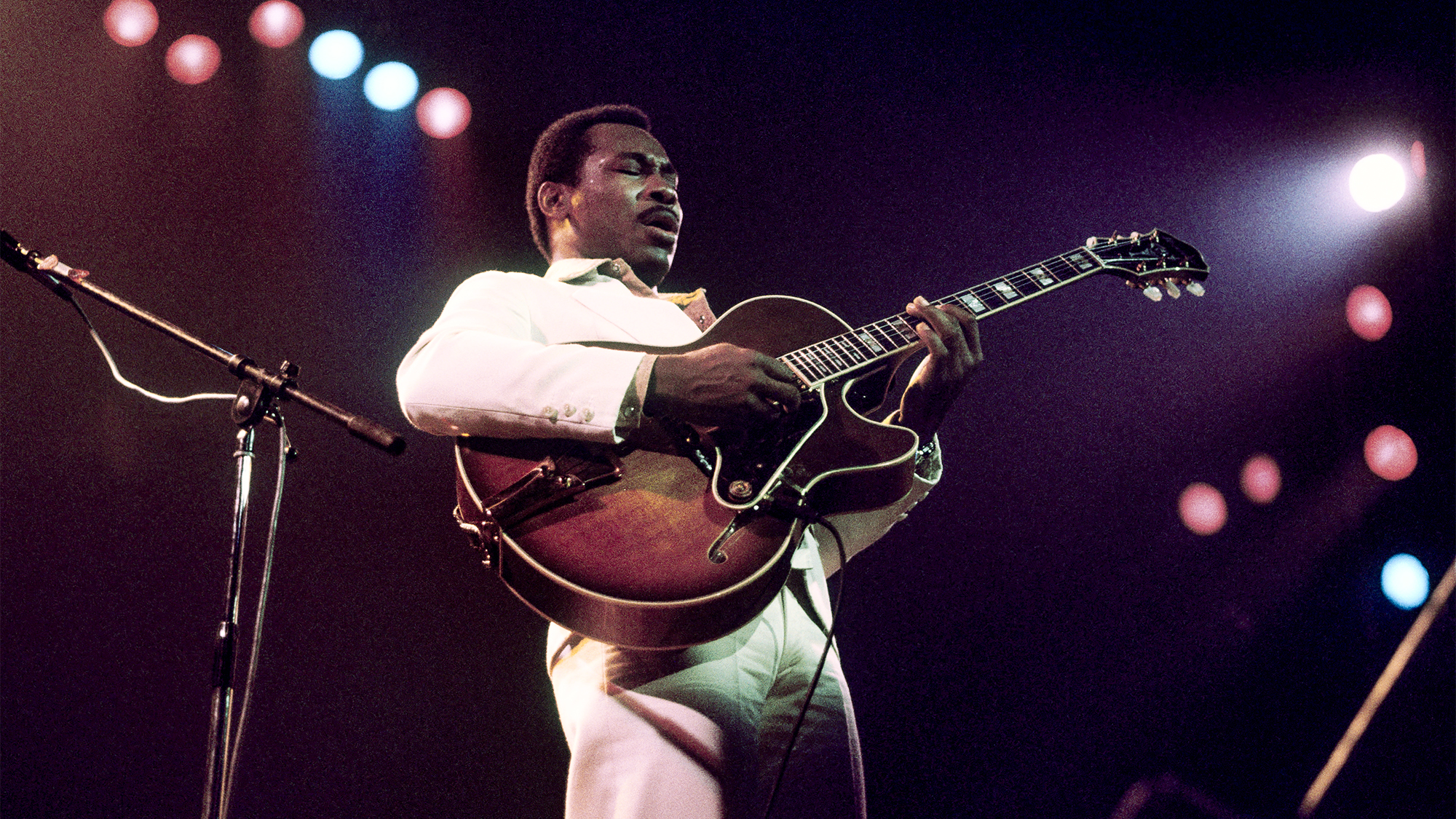Best wireless guitar systems: unshackle yourself from cables, it’s time to go wireless
Unlock the freedom of the stage with our pick of the best wireless guitar systems from Boss, Line 6, AKG, Behringer, Sennheiser, NUX, and more
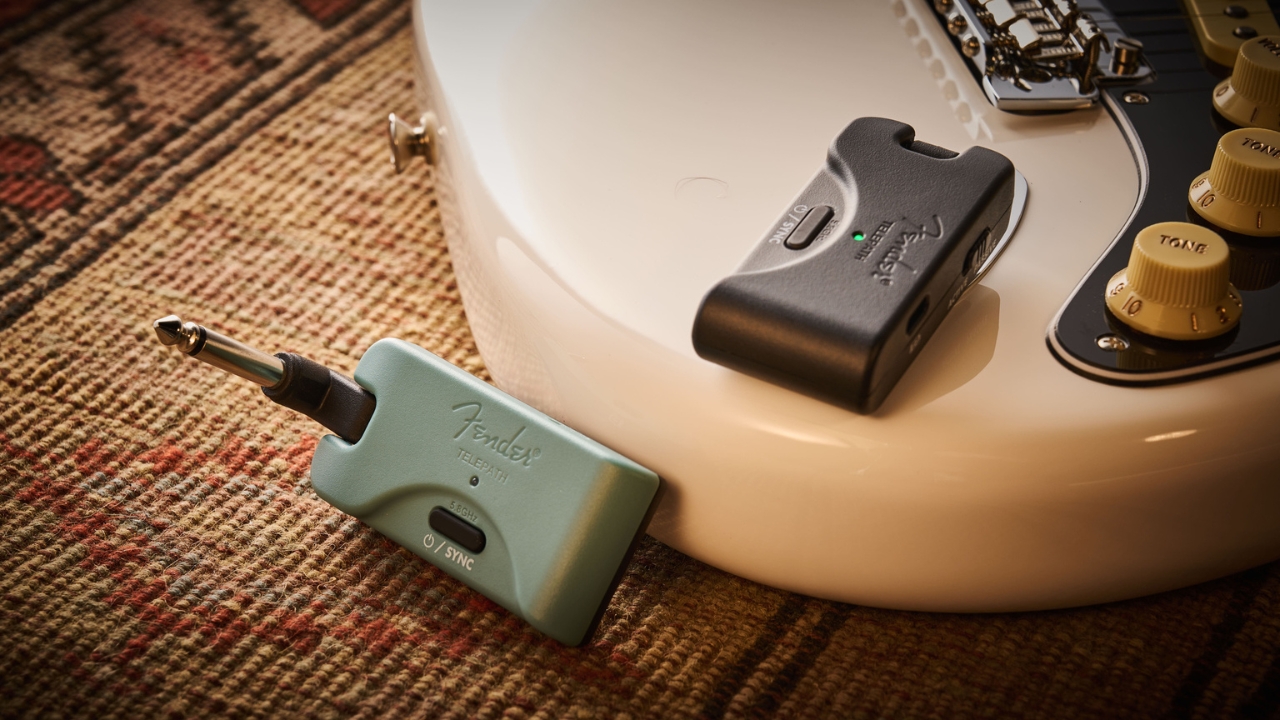
All the latest guitar news, interviews, lessons, reviews, deals and more, direct to your inbox!
You are now subscribed
Your newsletter sign-up was successful
For electric guitarists, plugging into an amp with a cable is second nature – it is how we have always done it. But for some, being tethered to one spot isn’t ideal. Thankfully, the best wireless guitar systems let us break free and move without restriction, gaining a new level of freedom like never before.
We’ve all been there – yanking a cable out of the amp, tripping over it mid-set, or wrestling with a tangled mess when packing up. Although a long-term friend and ally, guitar cables have their drawbacks, but a wireless guitar system eliminates them entirely, transmitting your signal from guitar to amp without the hassle of cables.
At one time, wireless guitar systems weren’t particularly accessible due to limitations in availability, functionality, and price. Thankfully, this has changed, and now budget options are available that can be even cheaper than some high-end cables. If you’ve been limited by your cable for too long, read on to discover the best wireless guitar systems that can free you from the constraints of traditional cables.
Our top picks
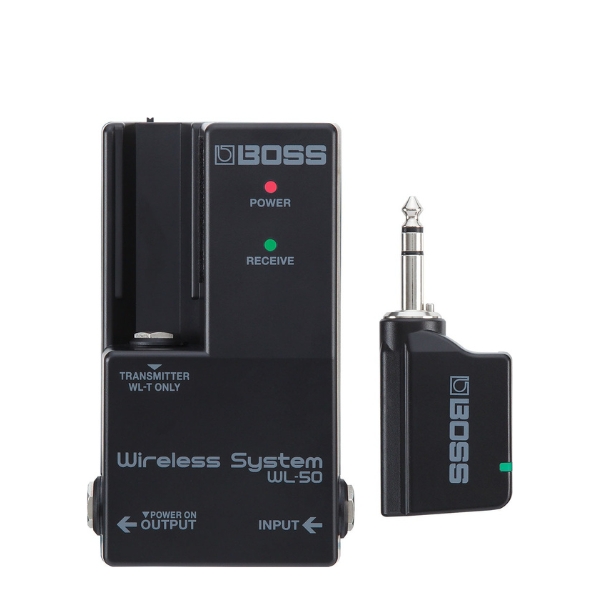
Well known for their durable build quality and reliability in pedals, it's only natural that the Boss WL-50 excels as a wireless guitar system, perfect for guitar players on stage or at home.
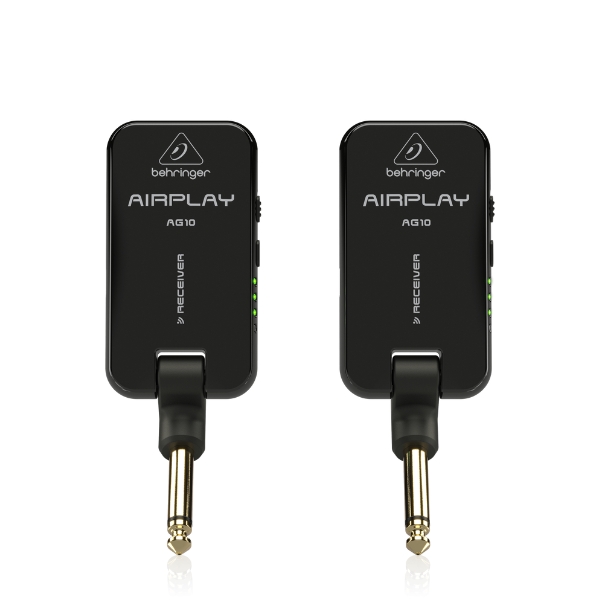
Good wireless systems don't have to cost the earth, as evidenced by the Behringer Airplay Guitar AG10, which delivers excellent performance for the guitarist on a budget.
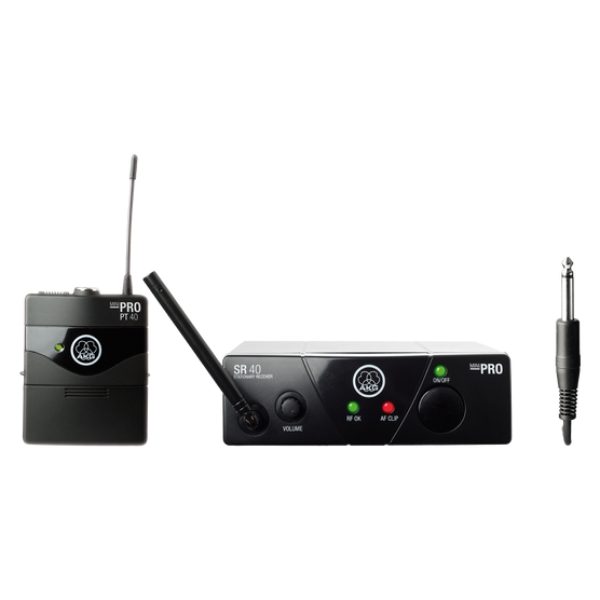
Setting up guitar wireless systems can be complicated, but the AKG WMS 40 Mini Instrument ISM2 is one of the few truly 'plug-and-play' options on the market for guitarists.
Best overall
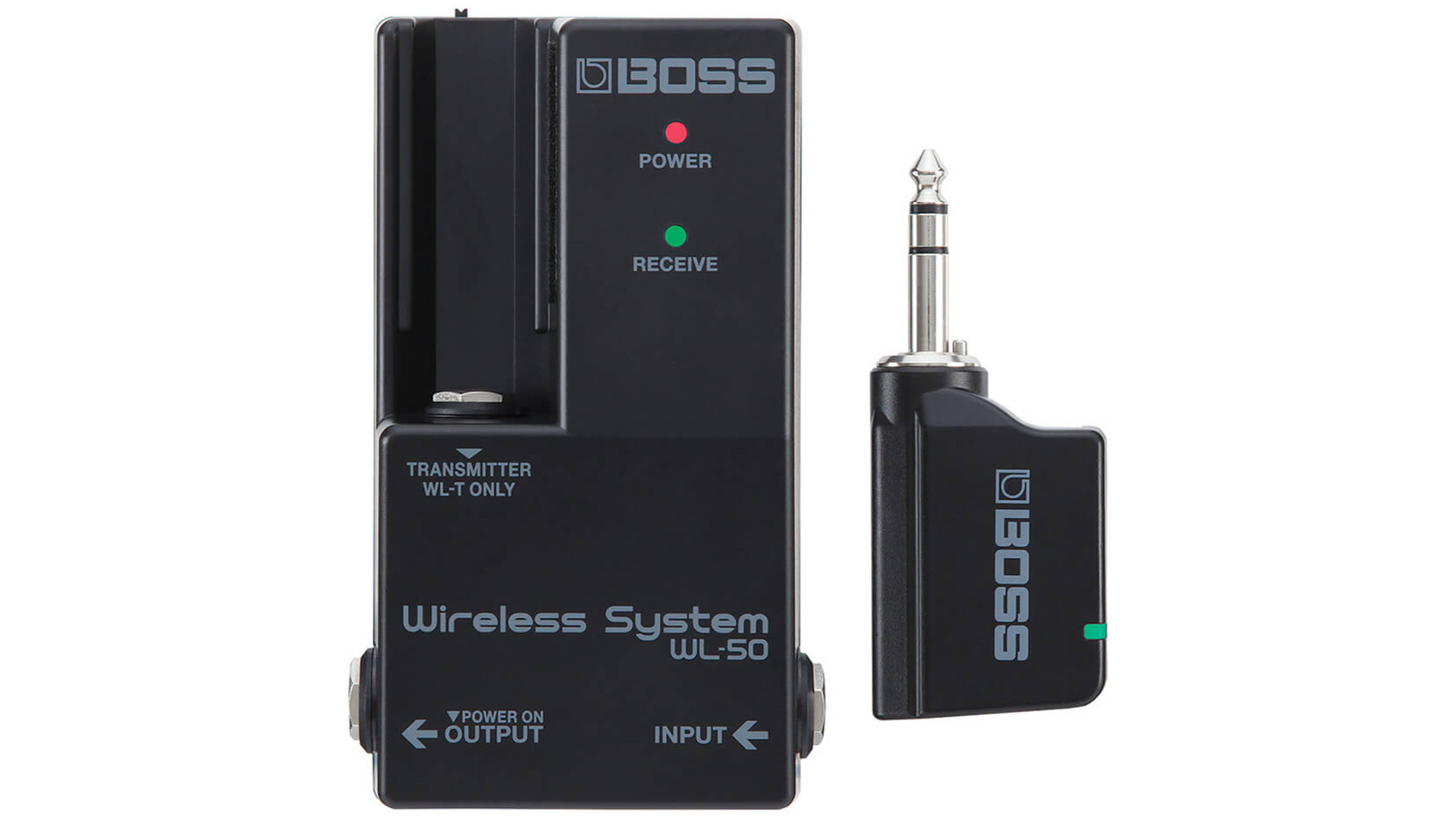
1. Boss WL-50
Our expert review:
Specifications
Reasons to buy
Reasons to avoid
When it comes to music gear, Boss has to top the list for reliability. Whether it's a compact stomp box, a masterfully designed modeling amp, or, indeed, a wireless guitar system, their units are built like tanks – able to withstand anything you throw at them.
The Boss product we're looking at today is the WL-50, which was specifically developed for pedalboard players. Housing brand-new Boss tech, the WL-50 offers 65 feet of range, extremely low latency, and a very respectable frequency spectrum.
Of course, with this system being conceived by the world leader in pedals, you also get a few welcome extras such as a compact form factor, an onboard docking port for charging the transmitter, and a DC output, which allows you to power a few extra stomps on your board.
Best on a budget
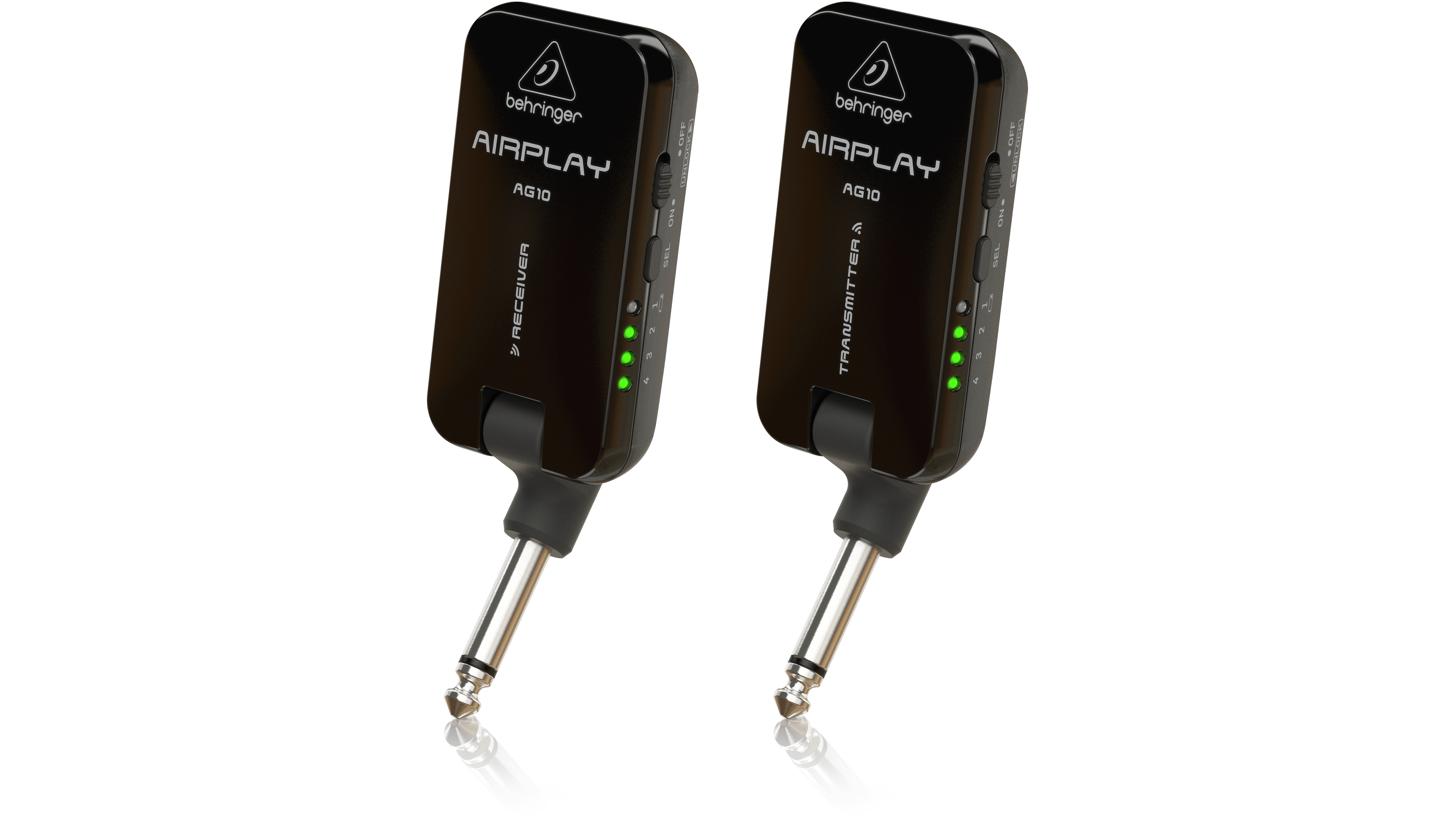
2. Behringer Airplay Guitar AG10
Our expert review:
Specifications
Reasons to buy
Reasons to avoid
Behringer is a leading force in affordable music gear, be that overdrive pedals and portable PA systems, synthesizers, and other accessories. Of course, that extends to wireless systems, with the Airplay AG10 offering outstanding value for money.
Like many of the other options on this list, the AG10 is truly plug-and-play – clearly, we guitarists like things as simple as humanly possible. As well as simple operation, this nifty wireless system also offers ultra-low latency of around 5ms, around 30 meters of range, and 24-bit / 48kHz signal transmission audio quality. The 6.5 hours of battery life is pretty generous, and it is made even better thanks to the auto sleep and wake-up function.
Offering 100ft of roaming capabilities, this affordable wireless system competes neck and neck with models twice its price in terms of range. So if you are looking for a cheap-as-chips option that certainly won't break the bank, you'll want to check this one out for sure.
Best for beginners
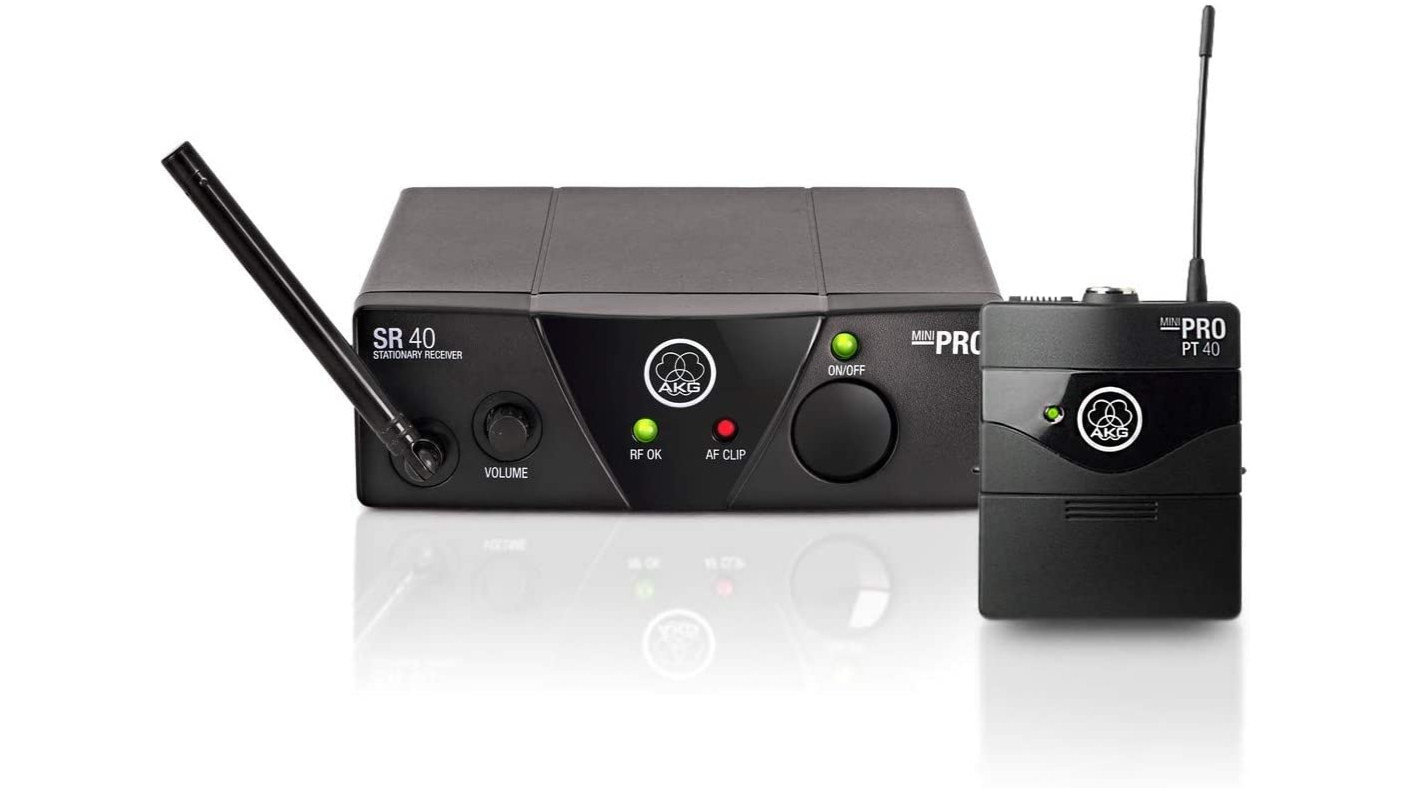
3. AKG WMS 40 Mini Instrument ISM2
Our expert review:
Specifications
Reasons to buy
Reasons to avoid
Setting out to create a "true plug 'n' play wireless solution", AKG's WMS 40 Mini Instrument ISM2 is a brilliant unit for those who want to avoid the faff of setting up this sort of device. At the end of the day, we aren't all audio engineers – we just want to plug in and rock!
Well, thankfully the AKG offers just that. With a professional 3-pin mini XLR connector, the PT40 Mini body-pack transmitter is compatible with electric guitars, bass guitars, headsets, and instrument mics – meaning it's appropriate for many different musicians. Being both lightweight and rugged it is easy to toss into a gig bag and move seamlessly from rehearsal room to gig venue without too much worry.
Better yet, with 30 hours of use – off a single AA battery, no less – the AKG will even keep on rocking through your never-ending, experimental jam sessions. You've also got a generous 100 feet to roam around, offering a newfound freedom that'll easily accommodate most, if not all, local venues.
Best for live performance
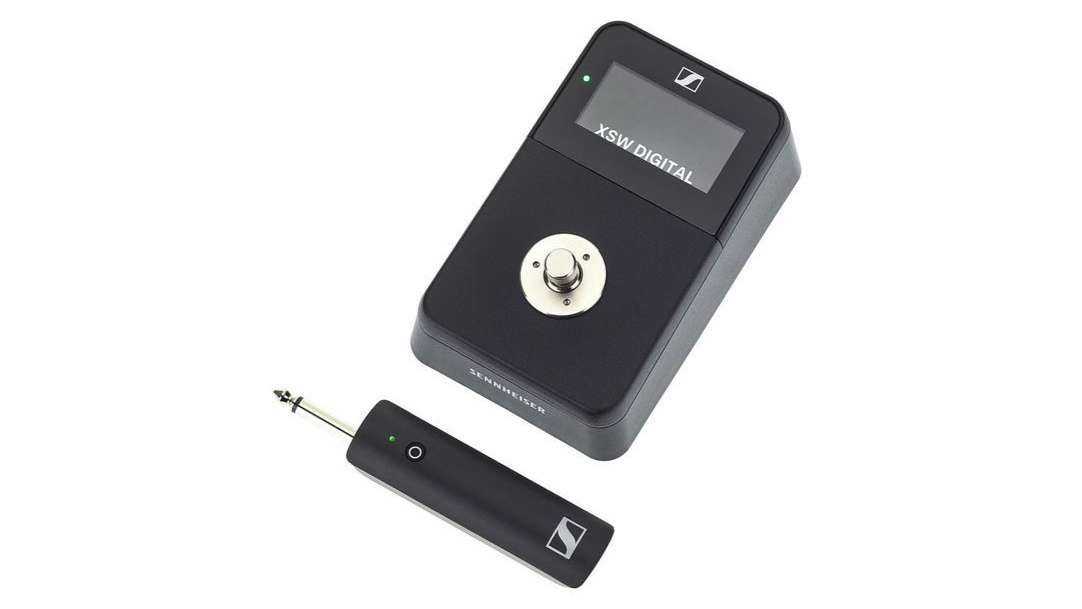
4. Sennheiser XSW-D Pedalboard Set
Our expert review:
Specifications
Reasons to buy
Reasons to avoid
When it comes to pedalboard wireless solutions, you'll be hard-pressed to find a better example than the Sennheiser XSW-D Pedalboard Set. To be fair, that's hardly surprising, considering Sennheiser makes some of the most renowned wireless microphones, headsets and headphones in the world.
This being said, world-class wireless technology isn't what sets this system apart from the rest. Rather it's the special functionality, specifically designed for guitarists, that got us interested in this unit. Namely, the purpose-built case that makes it pedalboard-friendly, while the incorporated tuner means it isn't just dead space on your 'board.
Now, of course, with this being a Sennheiser wireless system, you get a one-touch set-up, 2.4GHz digital transmission for worldwide operation, and a whopping 250ft of range. Wireless systems can often be a little flimsy, for lack of a better term, but Sennheiser has pulled out all the stops by housing the transmitter in a rugged, metal casing – it's super sturdy. So, if you’re looking specifically for a rock-steady wireless system for your pedalboard, look no further than the XSW-D.
Best for professionals
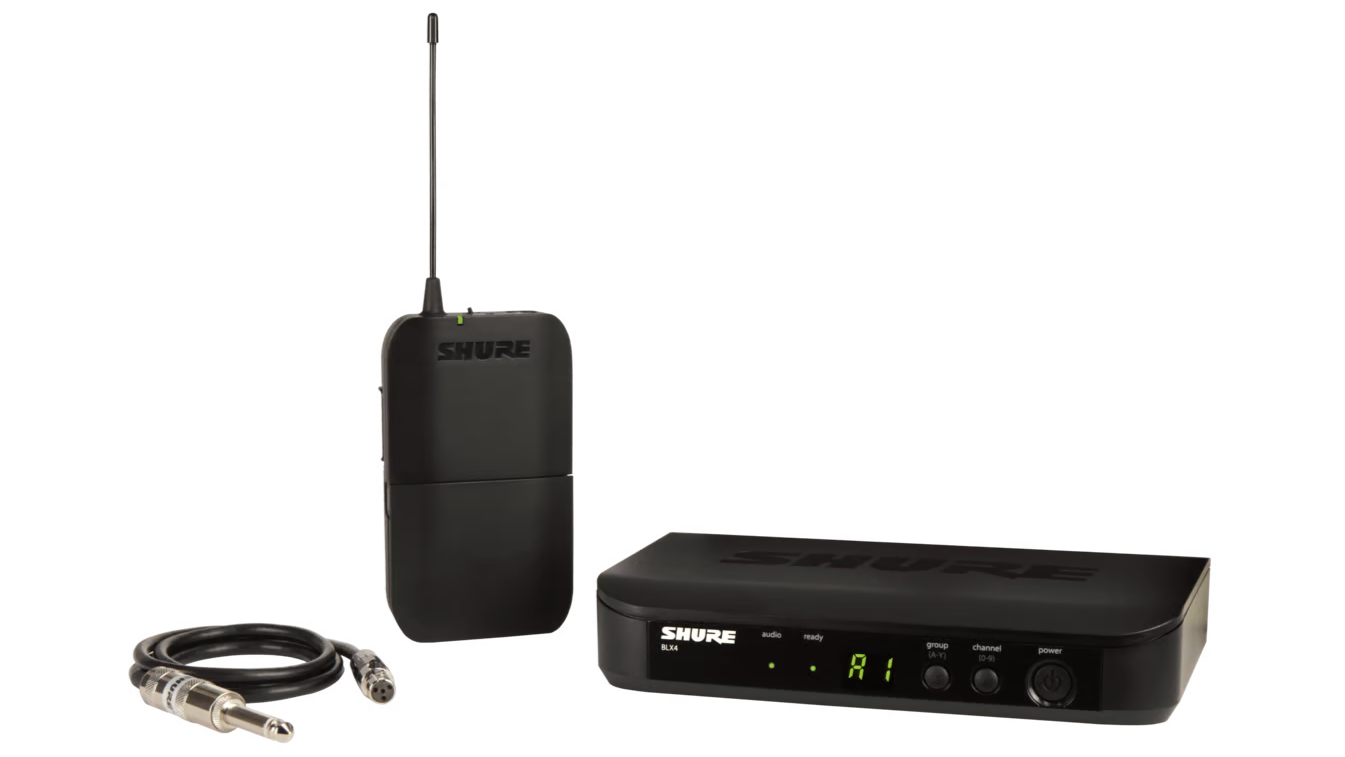
5. Shure BLX14 Wireless Guitar System
Our expert review:
Specifications
Reasons to buy
Reasons to avoid
It makes sense if you want a truly outstanding live sound that you'd go to a pro audio specialist, and that's exactly what you get with the Shure BLX14. Okay, this unit from Shure isn't exactly the cheapest on this list, but it does seem you get what you pay for.
Delivering up to 14 hours of continuous use with AA batteries and an operating range of up to 100 meters, this system will handle myriad different venues and situations. At the same time, the hardy body-pack transmitter will endure even the most enthusiastic performance.
The brilliantly designed BLX4 receiver includes the One Touch-QuickScan feature which, as the name suggests, allows for effortless connectivity – meaning you never need to worry about linking to a weak frequency. Although 100 meters is fantastic, it may be overkill if you’re only playing small venues. That being said, this unit's reliability and ease of use tip the scales overwhelmingly in favor of this professional quality wireless system from Shure.
Best for home
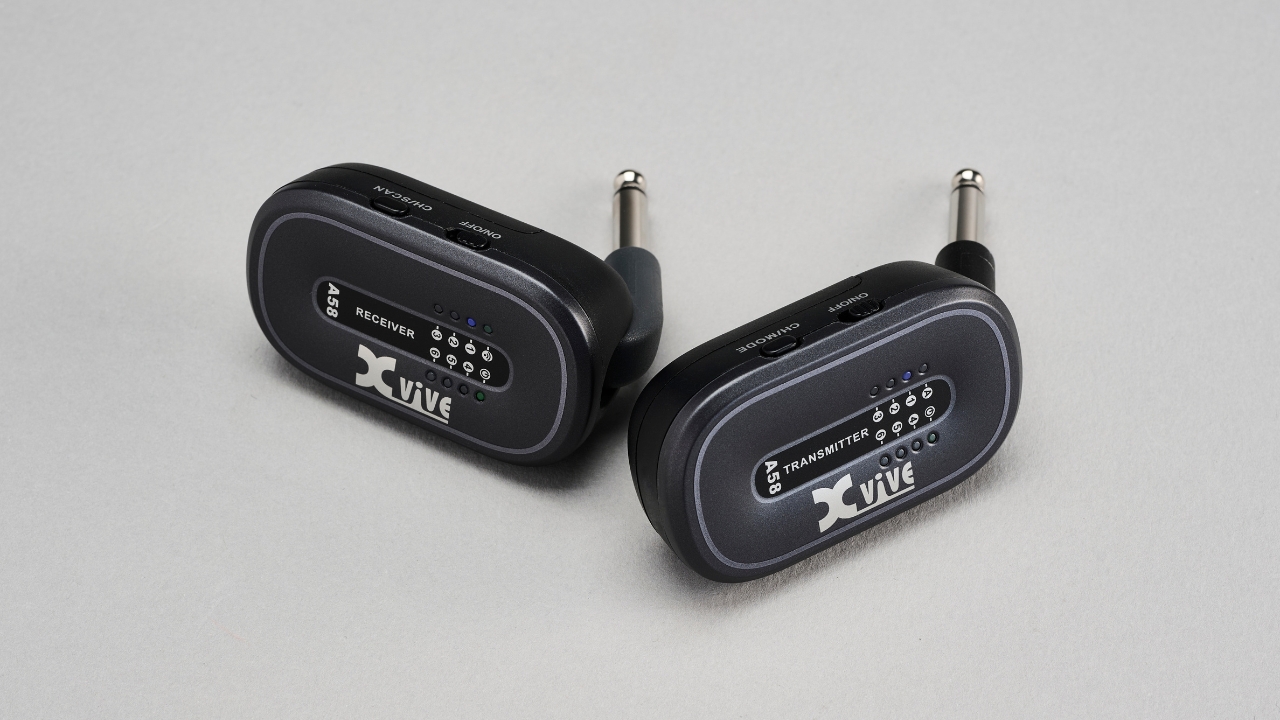
6. Xvive A58
Our expert review:
Specifications
Reasons to buy
Reasons to avoid
Xvive is known for making budget-friendly wireless systems that perform as well as more expensive options. Its latest offering is the Xvive A58, a dongle-style system with 100ft of range and an excellent USP. The A58 is programmed to operate at 5.8GHz, which is ultra-reliable and far less ‘crowded’ than 2.4GHz, meaning you are much less likely to encounter interference. It also automatically scans for the best wireless channel, to make sure you have the most stable connection.
Whilst Xvive produces a number of cheaper systems in its range, where the A58 stands above its siblings is with the introduction of an active/passive switch, which means the A58 works just as well with every type of pickup.
Two and a half hours of charge time gives you five hours of playing time – or perhaps more importantly for real-world use, half an hour of charging provides an hour of playing, which is particularly handy if you’ve forgotten to charge up just before a gig.
More options...
Didn't find what you were looking for above? Don't worry we've got you covered. Here are some more excellent wireless systems for you to take a look at.
Line 6 Relay G10SII
130ft | 20Hz-20kHz | 2.4GHz | >2.9ms
Line 6’s G10SII is a handsome little pedalboard wireless system that has been designed to work with guitar, bass, or other instruments with high-impedance outputs. It comes bundled with the G10TII wireless receiver – a smart dongle that also works with Line 6 Spider amplifiers, as well as the POD Go and Yamaha TH series amplifiers.
★★★★½
NUX C-5RC
30m | 20Hz-20kHz | 5.8GHz | <5ms
Don't let its tiny size fool you. This petite, discreet system from NUX gives the big dogs a run for their money. Operating on 5.8GHz, the C-5RC won't compete with other common household wireless devices such as wi-fi routers, Bluetooth and cordless phones – which run the more typical 2.4GHz frequency.
★★★★☆
Ibanez WS1
30m | 20Hz-20kHz | 2.4GHz | >5ms
Ibanez is a brand that appreciates experimenting with a range of pickup styles so it’s no surprise to hear that the WS1 works equally well with passive and active pickups as well as piezo pickups. Also, if you don’t like faffing about with different channels, automatic mode will choose the best one for your current location. Other specifications include 24-bit/44.1kHz audio quality, less than 5ms of latency and four hours of continuous battery use.
★★★★☆
Fender Telepath
70ft | 5.8GHz | >4ms
Aesthetically and functionally, it shares some DNA with the popular Mustang Micro Plus, and like that little unit, the Telepath punches well above its weight in terms of versatility. No, it’s not the most rugged wireless system out there, and pro players might want something a little more road-tested. But for under $250, there’s a whole lot to like here for players wanting to cut the cord without breaking the bank.
★★★★☆
Positive Grid Spark Link
20m | 20Hz-20kHz | 2.4GHz | >3ms
In terms of design, the flexible hinge input plug means that if you change instruments mid-set, you needn’t worry about the plug fitting whatever kind of jack input your guitar has. The gold color may be a bit ostentatious for some, but others will love it – we fall firmly in the latter camp. As a simple plug-and-play wireless device, it’s among the best around, but serious professionals may want to look at higher-end products.
★★★★☆
How to choose
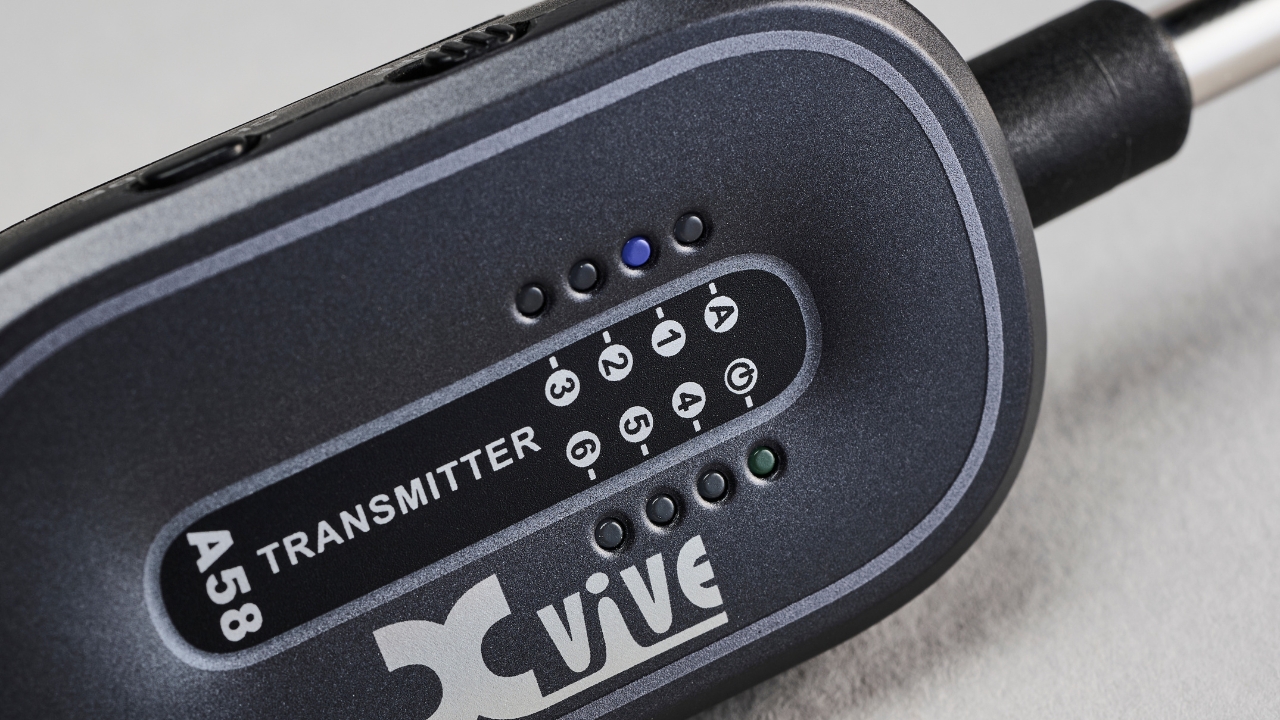
When it comes to choosing the best wireless guitar system for your needs, there are a few things you'll want to consider.
Range
You can trust Guitar Player.
All wireless systems will have a quoted ‘range’, which is the distance you can have the transmitter and receiver away from each other while still passing your unbroken signal between them. The range can vary drastically between different wireless systems, so consider whether you’re looking to just remove the tripping hazard by your feet, or are wanting to run around large stages. Bear in mind that range may be impacted if there are additional obstacles in the way, with most manufacturers quoting the ‘line of sight’ range. If you want to play in a different room, for example, walls may significantly reduce the range.
Power
Now, as you'd expect, wireless systems will run on batteries, so it's important to know the expected battery life of your unit. If you are playing three-hour cover sets, you'll want to know your wireless is up to the task. Depending on your system of choice, the receiver may also require additional power, which could interfere with your pedalboard if you do not use an isolated power supply.
Channels
Wireless systems will run on specific channels, and if you’re the only one using one, then you don’t need to worry about this too much. However, if several of you in one band utilize wireless systems and are on the same channel, chaos can ensue. In this instance, the band will need their own specific channel to transmit on, so make sure your system has as many channels as you are likely to need.
FAQs
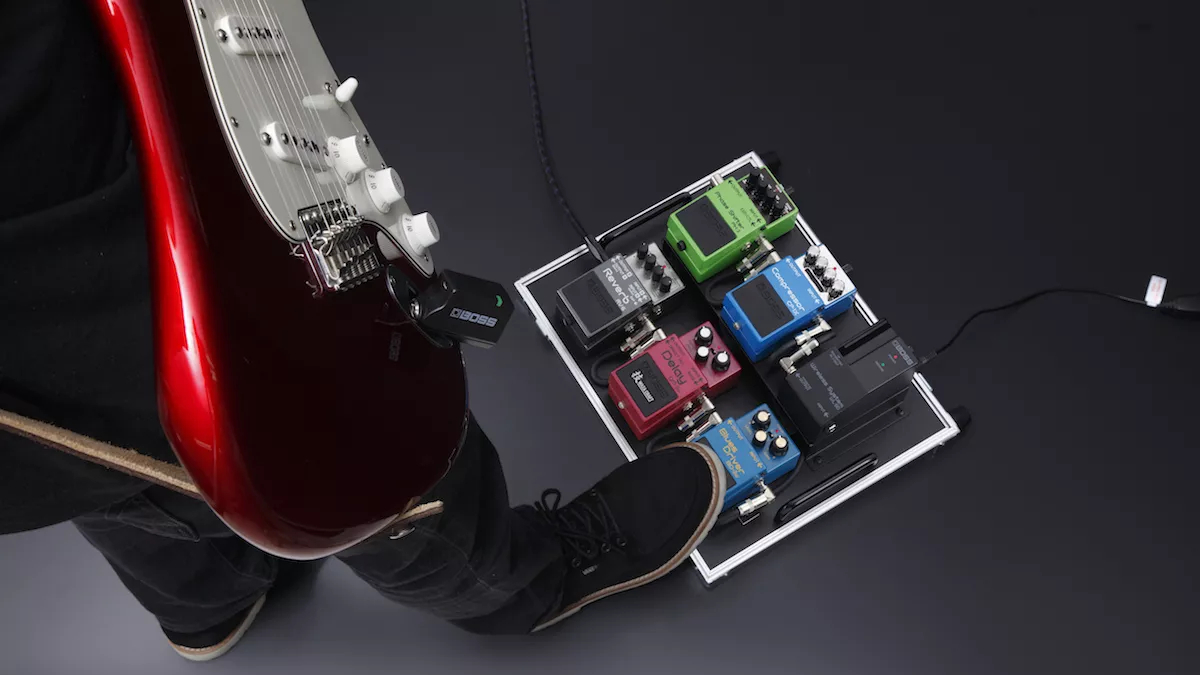
What is a wireless guitar system?
This probably won’t surprise you. A wireless guitar system allows you to play your guitar without wires! No long jack cables getting in the way.
So its function is pretty self-explanatory, but how exactly does a wireless guitar system operate? Every wireless system will have a transmitter – the bit that goes into your guitar and sends your tone – and a receiver – the device that receives the transmission. The transmitter will send your tone as digital data (in most modern systems, though older systems used radio frequencies) across a specific wireless frequency band. This transmitted signal will then be received by the receiver, which takes the digital (or radio) signal and converts it back into audio, ready to be amplified.
What type of wireless systems are there?
When looking at wireless systems, you’ll notice that they don’t necessarily all look alike. The traditional radio systems – which you may have seen players such as Angus Young using since the ’80s – require a small transmitter pack that would be attached to a belt or guitar strap, with the receiver plugged into your amplifier. The first of these systems was called the Schaffer-Vega Diversity System, which arrived in 1975, and you can still buy similar devices, such as the Shure BLX14 today, though they are much more compact, with more features, and operate digitally.
Perhaps the most popular type of wireless guitar system nowadays is the dongle – or bug – style, which is extremely simple to use. The transmitter and receiver in these systems will often automatically pair, allowing you to simply plug into your guitar and amplifier and get playing straight away. These are often cheaper than the traditional belt pack systems but may not have as long a range or as many channels to operate on.
The last type is the pedalboard-friendly system. These are specifically designed to integrate seamlessly with your current live rig. They are great for live musicians and take a lot of the fuss out of setting up a professional system – not to mention that some even have built-in tuners and mute switches!
Do wireless guitar systems affect the tone?
Poor-quality wireless systems can impact your tone; however, investing in a high-quality system means any loss in quality is negligible. There are even systems on the market that offer "cable emulation", so you can rest assured that the tone is almost identical to plugging and playing with a cable. If wireless systems are good enough for some of the greatest guitar icons ever, you can be sure they sound great.
What is the difference between 2.4GHz and 5.8GHz operating bands?
As you shop around for the best wireless guitar system, you'll quickly encounter the term "frequency band". But what's the fuss about these bands, and how do they impact your set-up? Put simply, a frequency band refers to a specific wireless frequency range your system employs to transmit and receive your guitar signal.
Now, why does it matter? Well, the best frequency band for your setup might vary depending on where you're located. These bands are doled out by regulatory authorities, and the perfect pick for you could hinge on the country you're in. This regulated allocation ensures your wireless system plays nice without causing interference amidst other gadgets like wi-fi routers or security cameras. Common frequency bands for guitar wireless systems include the familiar UHF (Ultra High Frequency), alongside the zippy 2.4GHz and 5.8GHz varieties.
2.4GHz is considered the benchmark frequency and has solid transmission, which deals well with obstructions; however, it is a busy frequency and interference can occur. 5.8GHz is a much quieter frequency and tends to have less interference. Whilst manufacturers will claim one is vastly superior to the other, the truth is that both fulfill their job really well, so this shouldn’t necessarily be a deal-breaker.
How we test products
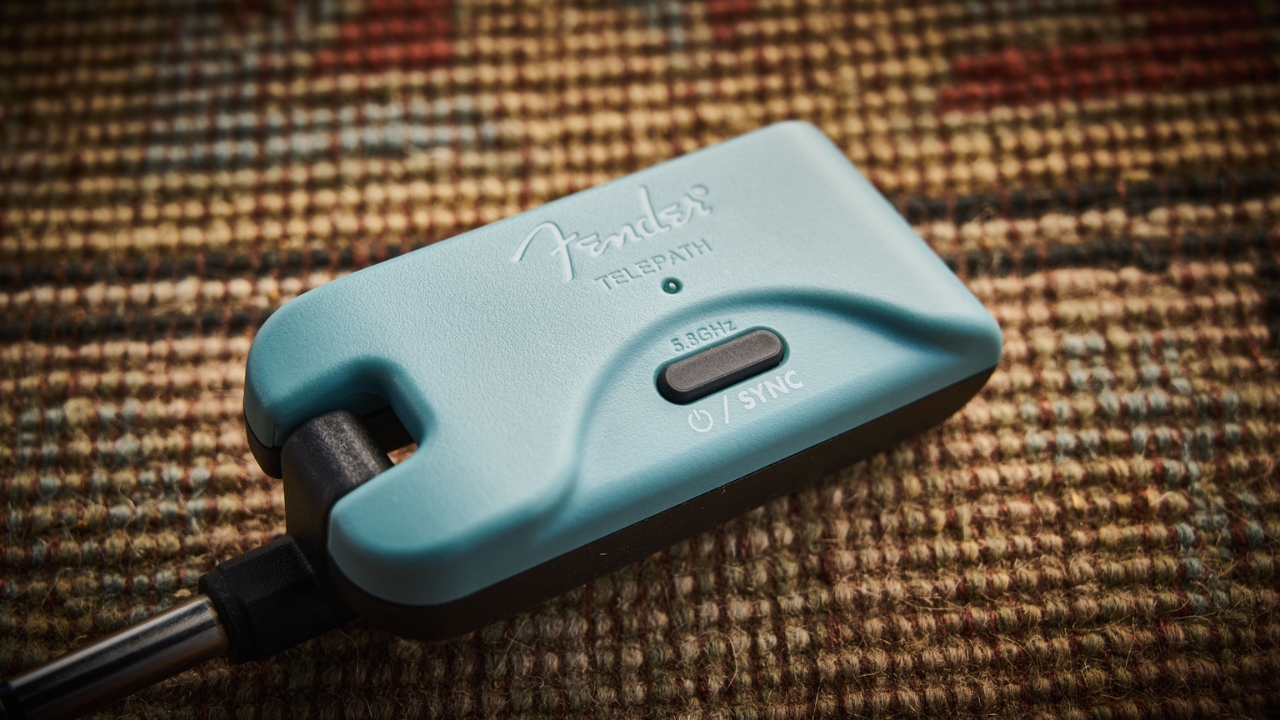
Here at Guitar Player, our writing team are guitarists first and foremost. That means we've had our hands on lots of different wireless guitar systems in our personal and professional lives, and tested them at home and on stage.
When we look at a wireless guitar system, we'll examine various factors starting with how easy is it to set up. Is it a 'plug-and-play' type system or does it require a little more fine-tuning like scanning for frequencies? We'll set it up at home and in a live scenario to make sure we get the best overview of how it works in the real world.
Next, we'll look at the build quality. Will it put up with the rough and tumble of life on the road? Is the transmitter versatile enough to fit into a variety of guitars? Are the any extra features that make using it a little easier? Is it more suited to home use or can it be easily utilized during live gigs?
Finally, we'll do a direct comparison of sound versus a regular cable. Is there any high-end roll-off? Does it pick up interference from other electrical items in the nearby vicinity? We'll also compare to other wireless units we've reviewed previously, comparing and contrasting how each one holds up.
Read more on how we test gear and services at Guitar Player.
Related buyer's guides
- Plug in with one of the best guitar cables
- Get the best of both worlds with the best acoustic electric guitars
- Save some money with the best bass guitars under $500
- Want an affordable amp? Well, here are the best guitar amps under $1,000
- Nail the tone for cheaper with the best guitar amps under $500
All the latest guitar news, interviews, lessons, reviews, deals and more, direct to your inbox!
First and foremost, I'm a guitar enthusiast – a fanatic, some might say. I'm a firm believer that most of the world's problems can be solved with a Gibson SG and a catastrophically loud amp. Before writing about guitars for a living as a Senior Deals Writer on Guitar Player, I worked in music retail for 7 years, giving advice on guitars, basses, drums, pianos, and PA systems. I also have a passion for live sound; I'm a fully qualified sound engineer with experience working in various venues in Scotland.
- Ross Holder
- Matt McCrackenJunior Deals Writer
- Connor Godfrey
